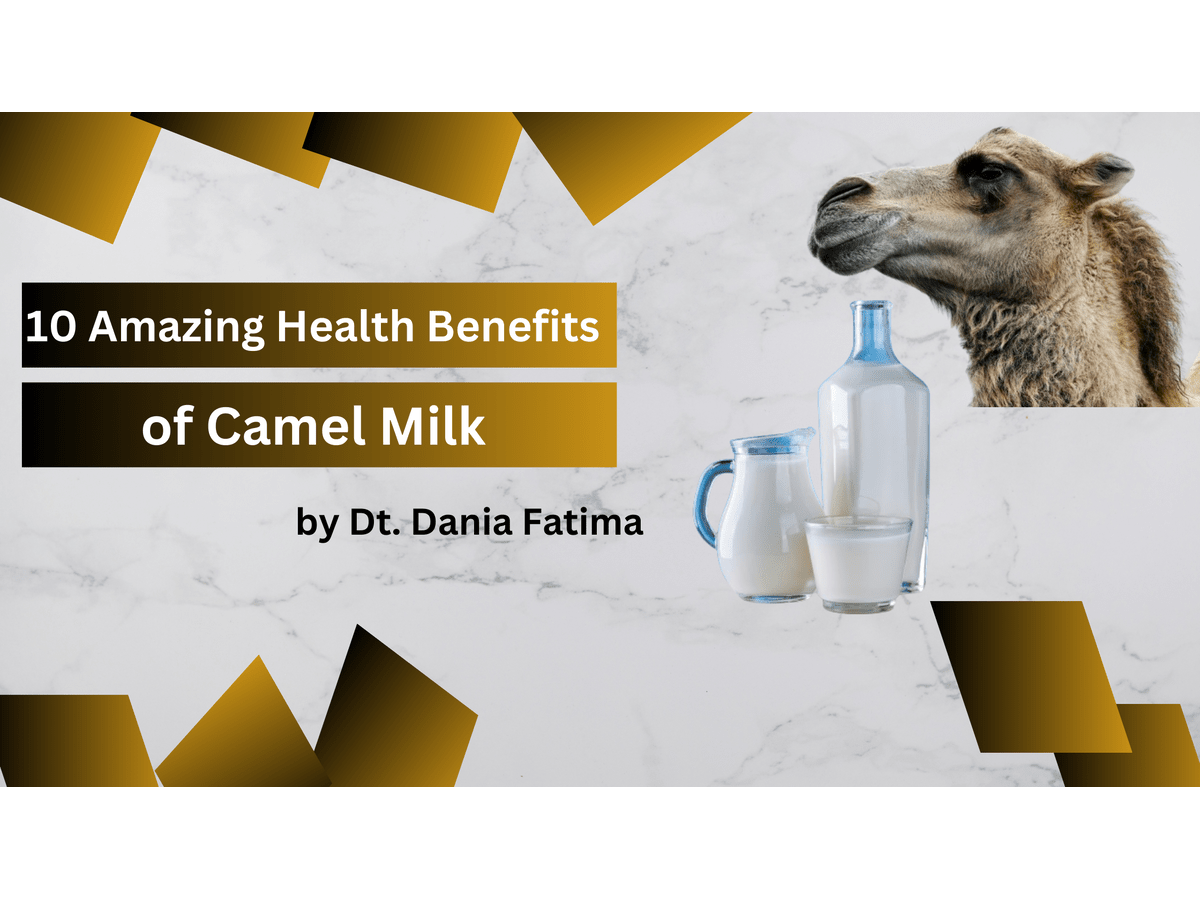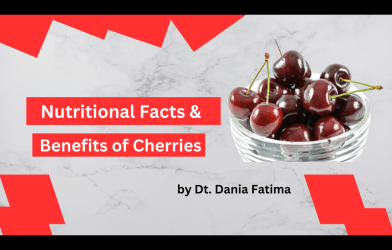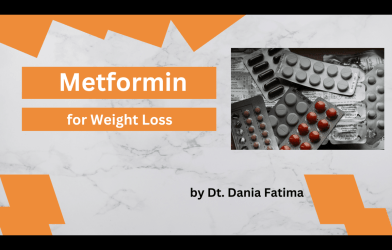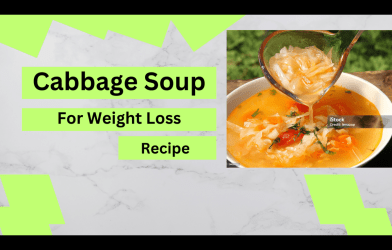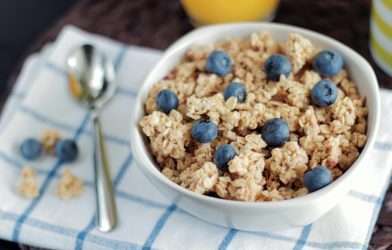Table of Contents
Introduction to Camel Milk
10 Amazing Health Benefits of Camel Milk: Good for Digestion. Camel milk, often regarded as a superfood, has been a staple in the diets of various cultures, particularly in arid and semi-arid regions, for centuries. This unique milk is renowned not only for its distinctive taste but also for its impressive nutritional profile.
Rich in vitamins, minerals, and beneficial proteins, camel milk offers numerous health benefits, including supporting the immune system, promoting digestive health, and providing a natural source of insulin-like proteins that may help manage diabetes.
Its lower fat content and different composition of fatty acids also make it a healthier alternative to cow’s milk for many people. As interest in alternative and nutritious food sources continues to grow globally, camel milk is increasingly being recognized for its potential to contribute to a balanced and healthful diet.
Nutritional Facts of Camel Milk
Camel milk is a powerhouse of nutrients, making it a valuable addition to any diet. A single cup (240 ml) of camel milk typically contains:
- Calories: Approximately 120
- Protein: 6 grams
- Fat: 5 grams
- Saturated Fat: 3 grams
- Carbohydrates: 11 grams
- Sugars: 8 grams
- Calcium: 30% of the Recommended Daily Allowance (RDA)
- Vitamin B1 (Thiamine): 70% of the RDA
- Vitamin B2 (Riboflavin): 13% of the RDA
- Vitamin D: 5% of the RDA
- Phosphorus: 15% of the RDA
- Potassium: 15% of the RDA
Camel milk also contains beneficial bioactive compounds, such as immunoglobulins, lactoferrin, and lysozymes, which contribute to its health-promoting properties. Furthermore, its unique insulin-like proteins and lower lactose content make it a more suitable option for individuals with lactose intolerance or those managing diabetes.
10 Amazing Health Benefits of Camel Milk
1. Boosts Immunity:
Camel milk contains high levels of immunoglobulins and lactoferrin, which enhance the body’s immune response and help fight off infections and diseases.
2. Improves Digestive Health:
The probiotics found in camel milk support a healthy gut flora, aiding digestion and preventing gastrointestinal issues such as bloating, constipation, and irritable bowel syndrome (IBS).
3. Manages Diabetes:
Due to its insulin-like proteins, camel milk can help regulate blood sugar levels, making it beneficial for individuals with diabetes. Some studies suggest it may reduce the need for insulin therapy.
4. Rich in Antioxidants:
Camel milk is abundant in antioxidants, which protect cells from oxidative stress and reduce the risk of chronic diseases such as cancer and cardiovascular problems.
5. Supports Heart Health:
With a balanced ratio of fatty acids and lower cholesterol levels compared to cow’s milk, camel milk supports cardiovascular health and can help lower the risk of heart disease.
6. Promotes Bone and Teeth Health:
High levels of calcium and phosphorus in camel milk contribute to the development and maintenance of strong bones and teeth, reducing the risk of osteoporosis and dental issues.
7. Enhances Skin Health:
The vitamins and minerals in camel milk nourish the skin, promoting a healthy complexion. Its hydrating properties can also help alleviate conditions such as eczema and psoriasis.
8. Provides Essential Nutrients:
Camel milk is a rich source of essential vitamins and minerals, including vitamins B1, B2, and D, as well as potassium and phosphorous, supporting overall health and well-being.
9. Aids in Growth and Development:
The protein content in camel milk is crucial for muscle growth and repair, making it an excellent dietary choice for growing children and athletes.
10. Reduces Lactose Intolerance Symptoms:
Camel milk contains lower levels of lactose compared to cow’s milk, making it a more easily digestible option for those with lactose intolerance and reducing related symptoms.
Uses of Camel Milk
Camel milk is not only a nutritious beverage but also an ingredient with versatile applications in various culinary and medicinal practices. Here are some of the common uses of camel milk:
- Beverages:
Camel milk can be consumed directly as a refreshing and healthy drink. It is often enjoyed plain or with added flavors like dates or honey to enhance its natural taste.
- Dairy Products:
Camel milk is used to make a range of dairy products such as cheese, yoghurt, and butter. These products are popular in regions where camel milk is a dietary staple and are gaining interest in global markets due to their unique flavors and health benefits.
- Skin Care Products:
Due to its nourishing and hydrating properties, camel milk is a valuable ingredient in cosmetic and skin care products. It is used in making soaps, lotions, and creams that can help soothe and moisturize the skin.
- Traditional Medicine:
In many cultures, camel milk is utilized for its medicinal properties. It is believed to help treat a variety of ailments, from digestive issues and allergies to chronic conditions such as diabetes and autoimmune disorders.
- Gourmet Cuisine:
Chefs are increasingly incorporating camel milk into gourmet dishes, exploring its unique flavor profile and texture. It can be used in both savory and sweet recipes, including soups, sauces, desserts, and baked goods.
- Infant Formula:
Some specialized infant formulas include camel milk as an ingredient due to its nutritional benefits and hypoallergenic properties, offering an alternative for babies who are allergic to cow’s milk.
- Fortified Dietary Supplements:
Camel milk is also available in powdered form and as a base for nutritional supplements. These products are often fortified with additional vitamins and minerals to provide an extra health boost.
Conclusion
In summary, camel milk stands out as a remarkable and nutritious alternative to traditional dairy products. Its unique composition, rich in essential vitamins, minerals, and bioactive compounds, offers numerous health benefits ranging from boosting immunity and managing diabetes to supporting heart, bone, and skin health.
Camel milk’s versatility extends beyond nutrition, finding applications in culinary arts, skincare, and traditional medicine. As awareness of its valuable properties grows, camel milk continues to gain popularity around the world, presenting itself as a wholesome supplement to a balanced and healthful diet.
FAQs about Camel Milk Benefits
Q: Is camel milk suitable for people with lactose intolerance?
A: Yes, camel milk has lower lactose content compared to cow’s milk, making it more suitable for individuals with lactose intolerance. Many people with lactose intolerance report fewer symptoms when consuming camel milk.
Q: Can camel milk help in managing diabetes?
A: Camel milk contains insulin-like proteins that help regulate blood sugar levels, which can be beneficial for individuals with diabetes. Some studies suggest that regular consumption of camel milk may reduce the need for insulin therapy.
Q: Is camel milk beneficial for heart health?
A: Yes, camel milk has a balanced ratio of fatty acids and lower cholesterol levels compared to cow’s milk. This supports cardiovascular health and may lower the risk of heart disease.
Q: How does camel milk boost immunity?
A: Camel milk is rich in immunoglobulins and lactoferrin, which enhance the body’s immune response, helping to fight infections and diseases.
Q: Can camel milk help with digestive issues?
A: The probiotics in camel milk support a healthy gut flora, aiding digestion and helping to prevent gastrointestinal issues such as bloating, constipation, and irritable bowel syndrome (IBS).
Q: Are there any skin benefits associated with camel milk?
A: Yes, camel milk contains vitamins and minerals that nourish the skin, promoting a healthy complexion. Its hydrating properties can also help alleviate conditions such as eczema and psoriasis.
Q: What are the antioxidant properties of camel milk?
A: Camel milk is abundant in antioxidants, which protect cells from oxidative stress, reducing the risk of chronic diseases such as cancer and cardiovascular problems.
Q: Is camel milk suitable for children’s growth and development?
A: The protein content in camel milk is crucial for muscle growth and repair, making it an excellent dietary choice for growing children.
Q: How does camel milk support bone and teeth health?
A: Camel milk is high in calcium and phosphorus, which are essential for the development and maintenance of strong bones and teeth, reducing the risk of osteoporosis and dental issues.



